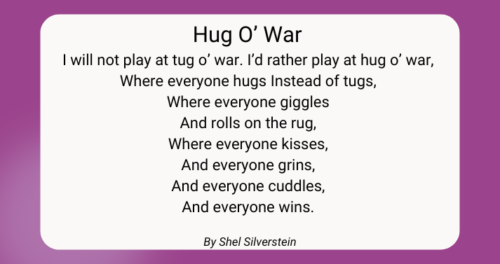Playing Tug O’War with your clients?

Do you ever feel like you are in a Tug O’War with a client about change?
Think about it. When YOU have played the actual Tug of War game, with a rope cutting into your hands, feet dug in, leaning back, trying to avoid getting pulled over or losing ground… What is your instinct, as the opposing team pulls harder and harder?
You dig in.
You increase your effort to oppose. You pull as hard as you possibly can to win. It becomes about the fight.
And if we are tugging a client toward change when their readiness isn’t there, they will likely respond with those fight instincts. Dig in. Oppose.
When we are in a Tug O’War with someone about a behavior change, the fight becomes the focus of attention instead of the actual change.

I’m not so naive as to suggest that stopping the tugging and starting the hugging is the solution (heck, maybe!?).
But I am here to tell you, Motivational Interviewing invites us to drop the rope.
Drop the rope.
Whether they actually really make this change is up to them, isn’t it?
The Motivational Interviewing approach invites us to step out of the tug of war, honor our client’s autonomy and find a more collaborative way to be in support change.
Motivational Interviewing Tip of the Week: I invite you to notice when you find yourself in a Tug O’War, and drop the rope. The Motivational Interviewing skill of honoring autonomy can be helpful here. This means saying something about their freedom to choose. “This is your choice,” or, “Whatever you decide to do is up to you.” Because it is! Our clients have autonomy, and if we are playing Tug of War with them, we aren’t honoring their right to choose. We want to empower them to choose!
Related Posts

When in Doubt, REFLECT!
Training participants often name the helpfulness of practicing reflective listening. It reminds us to sit back, drop our shoulders, and just listen! It pulls us out of problem-solving, persuading, and arguing for change. When YOU are getting pulled into trying to...
Related Posts

5 Tips for working with the Precontemplative client!
The Precontemplative Conundrum!If you are like, “Precontem…what?” check out my blog post on Stages of Change here. In short, “precontemplation” refers to the stage of change when clients aren’t wanting to think or talk about change. They might even be arguing against...

Let’s Learn Together!
Hi, I’m Hillary Bolter. At MI Center for Change, Motivational Interviewing is our passion. Motivational Interviewing will help you become more effective and efficient as you support clients’ change!

